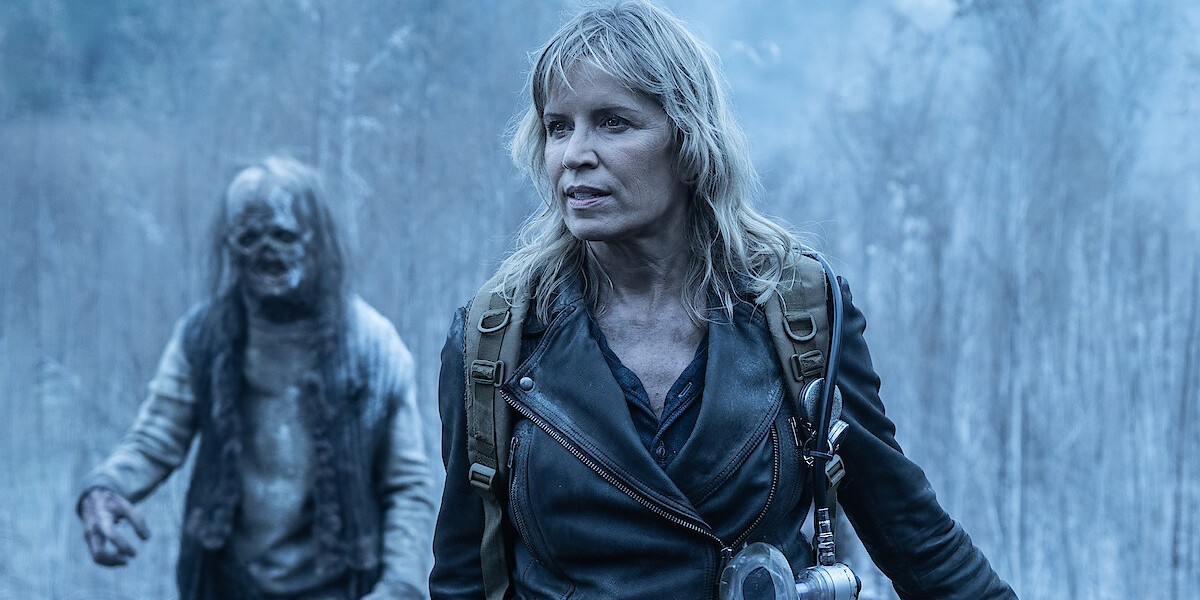Zombies have haunted our screens for decades, whether it's in chilling movies, video games, or TV shows. But what is it about these mindless, flesh-hungry creatures that stirs such primal fear in us? The psychology of fear plays a huge role in why we find zombies so terrifying. From their grotesque appearance to their mindless pursuit of human life, zombies tap into our deepest anxieties and survival instincts. In this article, we’ll explore the psychological factors behind our fear of zombies and why they continue to be a source of terror in popular culture.
The Fear of the Unknown: Zombies as a Manifestation of Chaos
At the core of zombie fear is the fear of the unknown. Zombies represent an unpredictable, chaotic force that disrupts our normal lives. They are not like other monsters; they don’t have a mind of their own or personal motives. This lack of individuality and reasoning makes them eerily unpredictable. Unlike vampires or werewolves, whose behaviors and weaknesses we can anticipate, zombies offer no logic or reason. Their relentless hunger and inability to be reasoned with symbolize a collapse of societal order. The world as we know it no longer functions when the dead walk, and this chaos taps into our deepest fears of losing control over our lives.
The Fear of Dehumanization: Zombies as the Loss of Identity
Zombies are humans, but not humans. They have the appearance of the living, but they have lost all sense of self-awareness, morality, and emotion. This transformation from human to monster taps into one of our greatest fears: dehumanization. The idea that someone you know, or even you yourself, could lose their identity and become something monstrous, mindless, and violent is deeply unsettling.
When we think of zombies, we imagine that sense of disconnection, as if the very essence of what makes us human has been stripped away. This fear resonates deeply because it reflects our subconscious worries about losing our autonomy, our sense of self, or even our humanity in the face of societal collapse or personal crisis.
The Fear of Infection: The Zombie as a Disease Metaphor
In many stories, zombies are not merely reanimated corpses—they are the result of an infection or virus. This adds an extra layer of fear: the terror of contagious diseases. The rapid, unstoppable spread of a zombie infection is a metaphor for the way real-world pandemics can spread, devastating entire populations in a short period of time.
Pandemics stir up deep fears because they threaten not only our physical survival but our social structure. Zombies, as representations of infection, tap into this primal fear that disease and contamination are unpredictable, invisible, and inevitable. The idea that something could transform us, our loved ones, or even the entire world without warning can be absolutely terrifying.
The Fear of Survival: The Ultimate Test of Human Instinct
Zombies put us face-to-face with one of our most fundamental fears: the fear of death. But perhaps even more terrifying is the fear of how we will face death when it arrives. Zombies represent the very real possibility of our own mortality, but they also symbolize the struggle to survive against overwhelming odds. In a zombie apocalypse, humans must rely on their primal instincts—fighting, scavenging, and protecting one another to stay alive.
The challenge of surviving in a world overrun by zombies triggers our instinctive fight-or-flight responses. It pushes us to ask ourselves, “What would I do in that situation?” The thought of being chased by hordes of the undead forces us to confront our own vulnerability and mortality. The fear of survival is intertwined with the fear of being consumed, both literally by the zombies and metaphorically by the collapse of society.
The Fear of the Unseen: Zombies as the Silent Threat
One of the most disturbing aspects of zombie lore is the idea that zombies are everywhere and nowhere at once. They’re often depicted as emerging out of nowhere, rising from the shadows, or waiting to pounce when least expected. This sense of an unseen threat creates a constant undercurrent of anxiety. The unknown is always scarier than the known, and the uncertainty of when or where zombies will appear can keep us on edge long after we put the movie or game down.
Zombies don’t have to be loud to be terrifying—they often only moan or shuffle quietly, making their presence all the more unnerving. It’s the silent anticipation of an attack that chills us to the bone. In this way, zombies embody the fear of being watched or stalked by something that you can’t see but can feel is there.
The Fear of Losing Loved Ones: Zombies as the Ultimate Betrayal
There’s also an emotional element to the fear of zombies that touches on the deepest fears of loss and betrayal. In many zombie stories, a loved one or family member becomes infected and is turned into a zombie. The horror of having to make the decision to kill someone you care about or see them become something else entirely is profound and heartbreaking.
This emotional torment speaks to our fear of losing the people we care about in ways we can’t control. It also embodies the fear of the breakdown of our social fabric—the loss of trust and connection that makes human life meaningful. When zombies attack, it’s not just our physical safety that’s at risk; our emotional bonds are, too.
Conclusion: The Timeless Terror of Zombies
Zombies will likely remain one of the most enduring symbols of fear in modern culture. The reason they scare us so much lies in the deep psychological triggers they activate—our fear of death, loss of control, dehumanization, and the unknown. Zombies are more than just fictional monsters; they are representations of our deepest, most primal anxieties about survival, identity, and the world around us. Whether in movies, games, or literature, zombies continue to captivate audiences because they tap into these universal fears, making them a chilling reflection of both the world we live in and the one we fear might one day come to pass.
For those seeking to explore the ongoing cultural phenomenon of the undead, ZombieWire provides a comprehensive look at why these creatures continue to haunt our imaginations.









